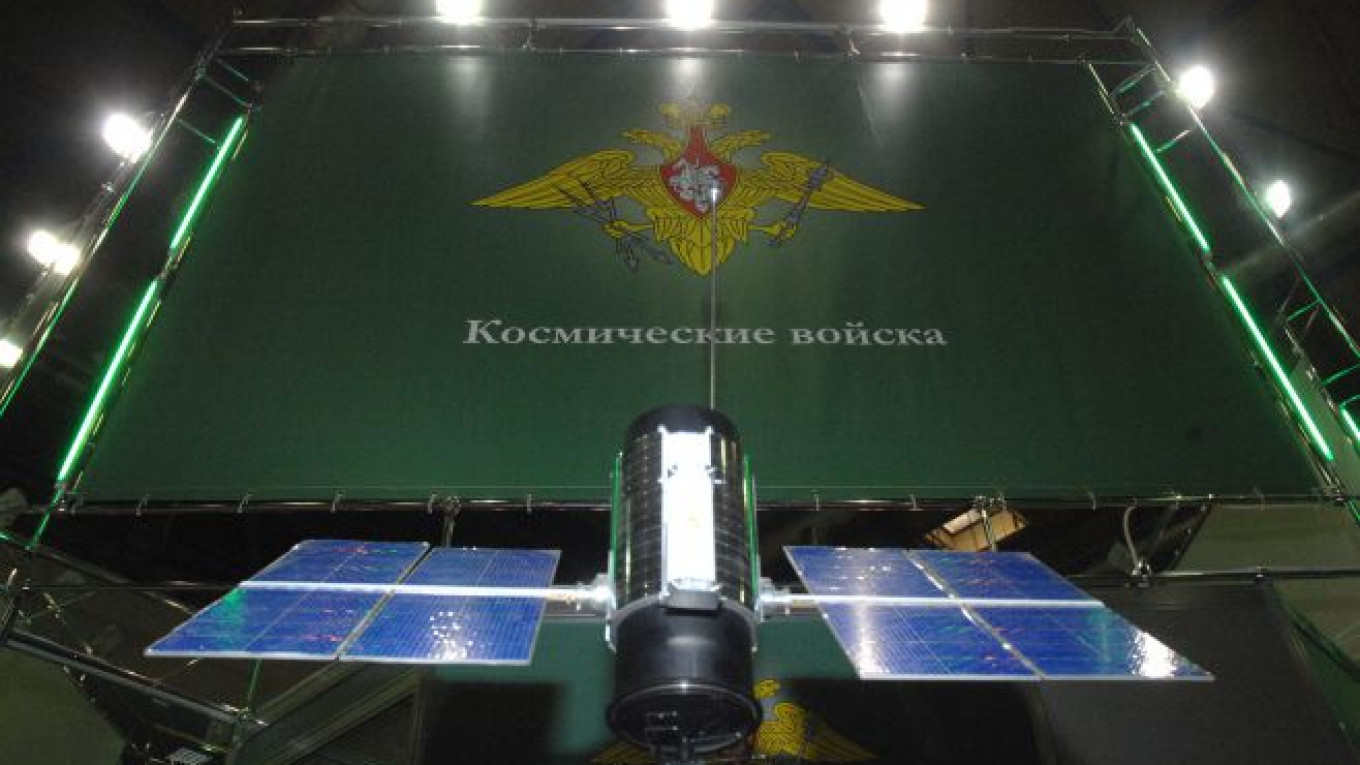Russia has lost contact with one of three military satellites responsible for detecting intercontinental ballistic missile launches, leaving Moscow blind to possible nuclear attacks, Kommersant reported Wednesday, citing a source in the Defense Ministry.
The Oko-1 satellite, otherwise catalogued as Kosmos-2479 — a euphemistic designation often given to Soviet and Russian military space hardware or spacecraft that fails after reaching orbit — was intended to act as the Defense Ministry's eye in the sky for a period of five to seven years after its launch in March 2012.
The satellite began malfunctioning soon after coming online but maintained some level of functionality until April, the source told Kommersant.
In order to provide global coverage with the Oko system, Moscow needs to have two functioning satellites of this type in orbit, and now there are none.
Only two of the eight 1.5 million ruble ($45 million) Oko-1 satellites deployed since 1991 have functioned for more than five years.
The Oko-1 satellite was located in geostationary orbit, meaning that it circles the globe in such a way as to constantly hover above a fixed point on the Earth's surface, in this case the U.S. The Defense Ministry in 2005 said publicly that these types of satellites were "hopelessly outdated."
Russia does have two older types of missile detection satellites in highly elliptical orbits, meaning that location relative to the Earth often changes. In order to provide constant coverage with these types of satellites, Russia would need to maintain six of them in space at any given moment. As a result, Moscow can now only monitor U.S. missile launches for three hours a day.
In 2011, then-commander of the Russian Space Forces, Oleg Ostapenko — now head of the Federal Space Agency — said that Russia would no longer replace failing satellites, but instead focus its efforts on creating an entirely new early warning system. Information on the program is scarce.
See also:
Russia Joins the 'New Space Economy' with Launch of First Private Satellites
A Message from The Moscow Times:
Dear readers,
We are facing unprecedented challenges. Russia's Prosecutor General's Office has designated The Moscow Times as an "undesirable" organization, criminalizing our work and putting our staff at risk of prosecution. This follows our earlier unjust labeling as a "foreign agent."
These actions are direct attempts to silence independent journalism in Russia. The authorities claim our work "discredits the decisions of the Russian leadership." We see things differently: we strive to provide accurate, unbiased reporting on Russia.
We, the journalists of The Moscow Times, refuse to be silenced. But to continue our work, we need your help.
Your support, no matter how small, makes a world of difference. If you can, please support us monthly starting from just $2. It's quick to set up, and every contribution makes a significant impact.
By supporting The Moscow Times, you're defending open, independent journalism in the face of repression. Thank you for standing with us.
Remind me later.






